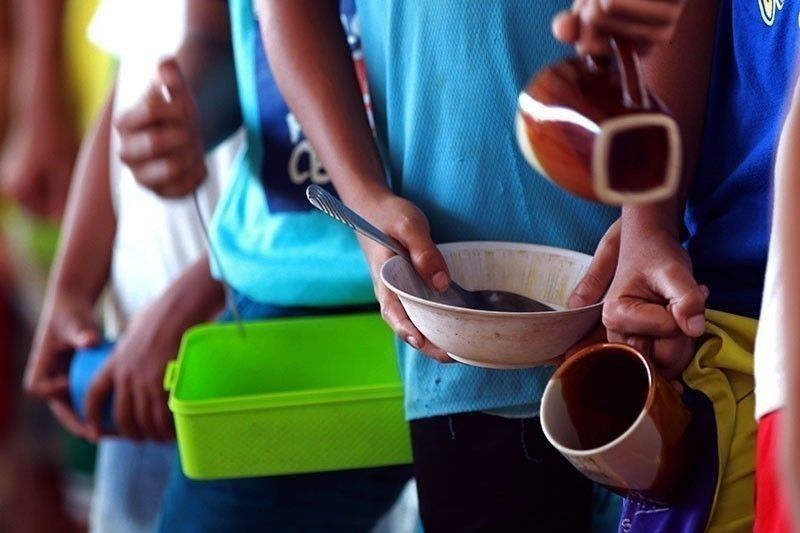Philippines' 'positive' credit rating overshadows poverty, debt — think tank

MANILA, Philippines — Although the Philippines received a “positive” credit rating outlook, an economic think tank cautioned against using it to “overstate” the country’s economic performance.
The think tank noted how other indicators show more Filipino families struggling to save and falling into poverty.
“Credit ratings should not be overstated as any kind of measure of economic performance or much less of national development,” IBON Foundation Executive Director Sonny Africa told Philstar.com.
American credit rating agency S&P Global Ratings announced on Tuesday, November 26, that the country’s credit rating outlook was raised from “stable” to “positive.” A credit rating refers to the country’s creditworthiness or ability to repay debt.
In a joint statement, state economic managers attributed the “above-average growth potential” to policies and fiscal reforms such as the recently signed CREATE MORE Act that decreases corporate income tax for businesses as it seeks more investments.
Africa said on Wednesday, November 27, that the government is exaggerating or overhyping the country’s economic growth, which Finance Secretary Ralph Recto has described as “booming” or having “all the makings of a tiger economy.”
“They seize on any fragment of seeming economic good news – like a ‘positive’ outlook — to bolster this narrative,” he added.
While he acknowledged the increase in government revenue due to the digital service tax, he also pointed out that CREATE MORE reduces the country’s revenue by lowering taxes paid by businesses.
Africa explained that this “positive” credit rating outlook actually overshadows the economic distress the Philippines has been experiencing.
“We should not make so much of the ‘positive’ outlook especially because so many key indicators show an economy in distress,” he said.
More families hungry, in poverty
Citing Social Weather Stations (SWS) self-rated poverty survey in October 2024, Africa stressed how more than half of Filipino families consider themselves poor. The figure has worsened since President Ferdinand Marcos Jr.’s administration assumed office in 2022.
In the third quarter of 2022, SWS reported that 49% or 12.2 million Filipino families believed they were poor. Two years later, this figure rose by 10 percentage points to 59% or 16.3 million families.
Africa said this translates to 3 in 5 Filipino families who are living with insufficient funds to provide a liveable life where needs are met.
RELATED: 16.3 million Filipino families consider themselves poor
The situation is the same for Filipino households experiencing involuntary hunger. From 11.3% reported in October 2022, this jumped to 23% in October 2024.
Africa said that BSP data also revealed that 7 in 10 Filipino families, or an estimated 19.2 million households, are unable to increase their savings.
“Increasing distress among families and eroding productive sectors are self-evidently not indications of a positive outlook for the economy,” he stressed.
IBON, however, also said that the metrics used to determine a country’s creditworthiness “is a little perplexing,” since they are “much worse” than pre-pandemic levels.
More money spent than earned
The country’s external debt ratio — measuring the proportion of economic output or gross domestic product needed to repay external debt — stood at 28.9% as of June 2024, according to the Bangko Sentral ng Pilipinas. This marks an increase from previous years, indicating that a larger share of export income is being used to service debt.
As of June 2024, BSP also recorded a 10.4% increase in the country’s external debt at 130.182 billion USD (P7.650 trillion), composed of public and private debt. In June 2023, the external debt was at $117.918 billion USD (P6.929 trillion).
Africa also said that the Philippines' current account deficit (-3.2%) and national government deficit (-5.1%) are still “much worse” compared to rates before the COVID-19 pandemic. This demonstrates how the country has been importing more goods than it is exporting and that the government is spending more than it is earning.
“Economic growth is weaker, the peso has depreciated to record lows, and overseas remittances have slowed. Even international reserves have depleted in the last four years, measured in terms of months worth of import cover,” he added.
Africa added that it would be inappropriate to use 2020 and 2021 as a baseline for economic growth given that the COVID-19 pandemic brought the Philippines to an economic slump with the “overlong lockdowns.”
Given the significantly low economic conditions at the time, the economist said the country had "nowhere to go but up," implying that the recent economic rebound is a natural outcome of lifting lockdowns.
He said that this is “no reason to be optimistic,” criticizing the government for equating a “positive” credit rating with substantial progress, especially when the Philippines has yet to return to pre-pandemic levels or surpass that even.
Credit rating as ‘politically motivated’
Citing the United Nations special rapporteur on foreign debt and UN Trade and Development’s position on credit ratings, Africa noted that credit rating agencies have been criticized for inconsistencies in their assessments and potential bias toward countries.
“It is, however, also possible that the ‘positive’ outlook is at least partially politically motivated,” he added. “Credit ratings agencies are also not very transparent or consistent with how they give their ratings, notwithstanding the narratives they provide for countries.”
Africa highlighted the likelihood that the US government has influenced major credit rating agencies' assessments of the Philippines “to boost the economy” and strengthen its alliance with the country against China.
“It's worth pointing out though that past credit upgrades which enhanced the country's image and presumably made credit cheaper have not arrested the secular decline of agriculture and manufacturing, nor substantially reduced poverty or lessened severe inequality,” he said.
- Latest
- Trending




























